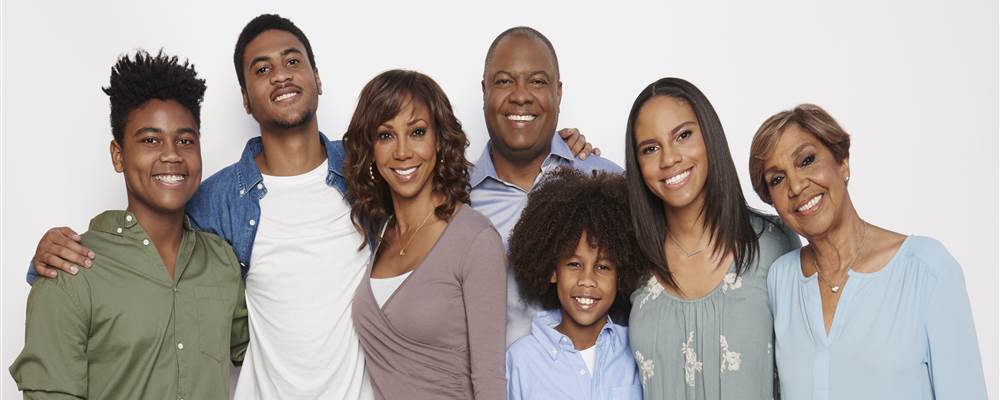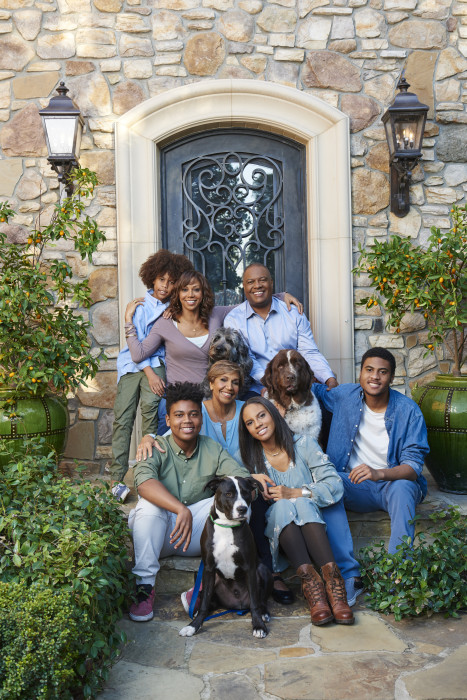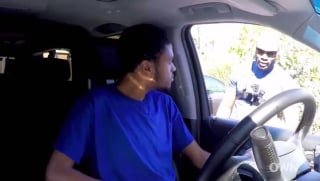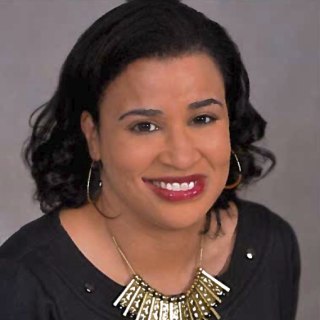
Peete hosts a town hall discussion, bringing together law enforcement and the special-needs community for a heartfelt and provocative discussion inspired mostly by Charles Kinsey – a black mental health therapist shot by North Miami police officers last year while trying to help his autistic patient. As the mother of a black son with autism, Peete says the case hit way too close to home.
NBCBLK contributor Chandra Thomas Whitfield caught up with Robinson Peete to talk about police violence, Developmental Disabilities Awareness Month, and why she chose to pursue the path of a reality show.

Why was it important to coordinate this town hall meeting and feature it on the show?
I just wanted to demonstrate what happens when you sit down, come together and talk about the issues. I also wanted to provide a platform to discuss solutions. When I heard about Charles Kinsey’s case it paralyzed me; it literally shut me down. We were on vacation at the time and I would not leave my room for days.
Any one of the recent [deadly police-involved shooting] cases have bothered me, but this one really hit home. This was out and out indefensible; they shot him with his hands clearly raised high in the air. And the officers’ excuse was, ‘we were aiming for the boy with Autism.’ That is bad enough, but if so why did you shoot [Kinsey], handcuff him and never offer any medical aid? That situation should have been deescalated and those officers should have walked that young man back to his group home.
The timing is impeccable. March is Developmental Disabilities Awareness Month and also an investigation is underway in Chico, California into the case of 25-year-old Desmond Phillips who was gunned down by officers while suffering a mental health crisis. His father said he had called the police to help his son.
If you have a special needs kid, a kid with autism, who are we supposed to call [for help]? If we can’t call the police, then we need to know that. I can’t imagine that the only option has got to be to just kill someone; there’s got to be another way. What happened to that friendly officer who used to talk you down off the ledge? We put together the town hall because we wanted to come up with solutions.
What do you think are the solutions?
I played a cop on “21 Jump Street,” so I take it very seriously. I can’t tell you how many people have come up to me saying, ‘I became a police officer because of you.’ I understand that this is a big, tough job and there’s a lot of danger, but there needs to be more training. Most officers have had little or no autism training or know about how it presents itself; things like flapping of the arms, no eye contact or delayed processing of verbal commands can be easily viewed as noncompliance.
Related: ‘Pushout’ Aims to Stop Criminalization of Black Girls in Schools
I am working on putting forth legislation; getting autism training for law enforcement and things like having autism added to driver’s licenses. We’re calling it “RJ’s Law” and I am doing it in honor of my son, not in memory of my son. We want autism training for law enforcement and things like having autism added to driver’s licenses.

How has it been sharing your son’s experiences with autism on TV?
I definitely have never seen a show on TV featuring a kid of color talking about their experiences having a developmental disability, so it was always important for us to talk about it. They told us our kid would never be able to do anything and look at him now; he’s driving, he’s thriving and gaining more independence every day.
I am so happy, but I am also terrified every time he drives off from our house about what could happen to him out there. I believe there is power in sharing our experience with others. If I had seen something like that on television years ago [when he was diagnosed] that could have made such a difference.
Reality shows get a bad wrap for highlighting the negative, particularly in the black community. Why’d you decide to do one?
I’ve had people ask me, ‘why do you want to do a reality show, that’s so ratchet.’ We definitely wanted to show a different, more nuanced view of a black family; that we’re not a homogenous group that all think and act alike. I didn’t want it be about a privileged, affluent black family who only did things for themselves. We wanted to use the show as a platform to advocate for others.
Related: Autistic Brothers Walk Tall in Southern University Marching Band
We deal with real issues, in real time: like my son’s autism, my brother just got diagnosed with Parkinson’s Disease and my husband’s health issues – that he may have CTE (Chronic Traumatic Encephalopathy) from his years playing football.
There definitely needs to be more diversity in the reality genre and I feel like we’re doing that and we’re just so happy that people are responding to it.





